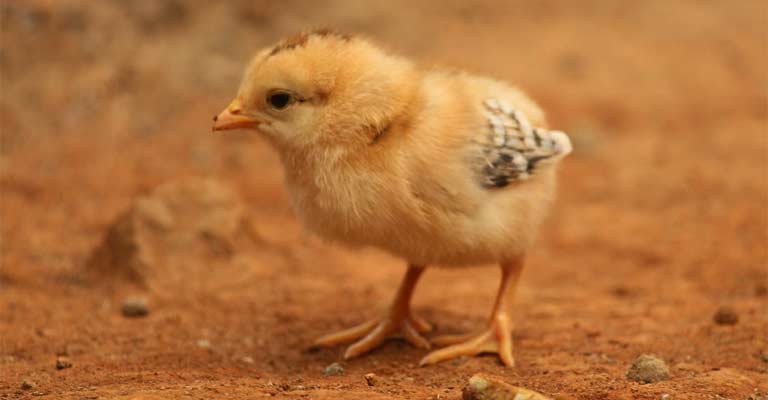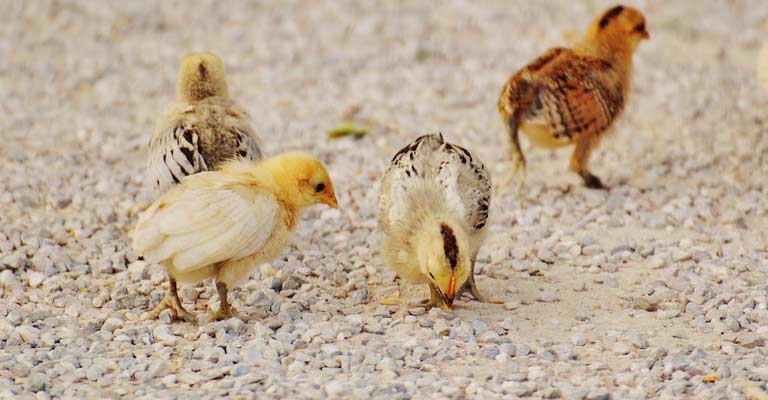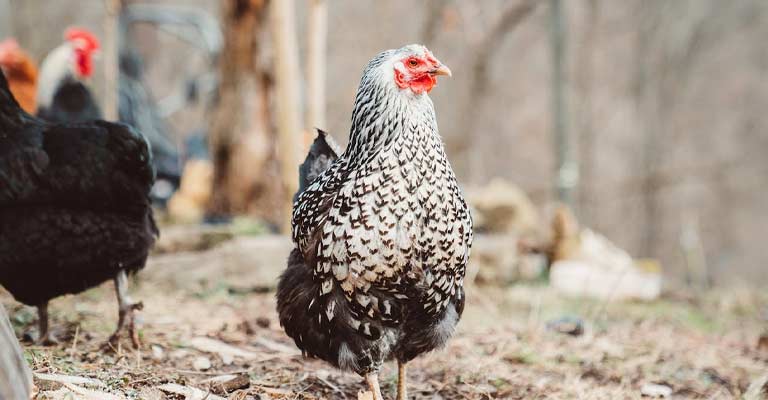As Easter approaches, the allure of adorable baby animals as gifts may seem irresistible. However, before you consider surprising your loved ones with a fluffy, peeping chick, it’s essential to understand the responsibilities and potential consequences involved.
While the idea of a baby chicken might evoke images of Easter bliss, the reality is far more complex. So, why not give a baby chicken for Easter?
This article delves into the reasons why gifting a baby chicken may not be the charming gesture it appears to be.
From the chick’s welfare and specialized care requirements to the long-term commitment involved in raising a chicken, there are crucial aspects that demand consideration.
Before you embark on the notion of presenting a living, breathing gift this Easter, let’s explore the reasons why opting for a stuffed bunny might be a wiser, more compassionate choice for both the recipient and the feathery friend.

Why Not to Give a Baby Chicken for Easter?
Easter brings the promise of renewal and joy, often accompanied by thoughtful gifts. Here are the reasons why presenting a living, breathing creature might not be the ideal Easter surprise, shedding light on the responsibilities, challenges, and ethical considerations involved.
The Fluffy Allure
The appeal of a baby chicken is undeniable soft feathers and gentle peeping, and the symbolism of new life perfectly aligns with the spirit of Easter.
However, beneath this charming facade lies a complex reality that potential gift-givers must carefully consider.
Specialized Care Requirements
Chicks, like any young animals, have specific needs that extend beyond the standard Easter basket fare. Proper housing, temperature control, and a well-balanced diet are essential for their well-being.
Unfortunately, many recipients of Easter chicks may not be adequately prepared or informed about these critical requirements.
The Lifelong Commitment
What starts as an adorable Easter gift can turn into a lifelong commitment. Chickens, when cared for properly, can live for several years, necessitating ongoing attention, resources, and dedication.
Gifting a living being entails a responsibility that extends far beyond the initial excitement of the holiday season.
Abandonment Issues
Regrettably, many Easter chicks face abandonment once the novelty wears off. What was initially seen as a cute, festive addition may become a burden, leading to the mistreatment or neglect of these animals.
Understanding the long-term commitment involved is vital to preventing such unfortunate outcomes.
Ethical Considerations
Beyond the practical challenges, ethical concerns surround the commercialization of live animals as Easter gifts. The demand for chicks during this season often results in mass breeding practices that may not prioritize the welfare of the animals.
Compassionate Alternatives
Rather than perpetuating the cycle of live animal gifting, consider alternatives that align with the true spirit of Easter. Stuffed animals, educational toys, or symbolic representations of animals can evoke joy without imposing a significant responsibility on the recipient.
These alternatives not only maintain the festive atmosphere but also promote compassion and responsible gift-giving.
Educational Outreach
To address the issue at its core, educational outreach is crucial. Encouraging awareness about the proper care of animals and the ethical considerations surrounding live animal gifting can help foster a more informed and compassionate community.
Organizations and individuals alike can play a role in spreading this knowledge, ensuring that the joy of Easter does not come at the expense of vulnerable creatures.
The Role of Legislation
Advocacy for stronger legislation to regulate the sale and gifting of live animals during festive seasons is essential. Stricter regulations can help mitigate impulse purchases and discourage the unsustainable breeding of animals for commercial gain.
By implementing and enforcing responsible practices, authorities can contribute to a more ethical approach to live animal gifting.
In the spirit of Easter, let us reflect on the true meaning of the season – a time of renewal, compassion, and responsibility. This Easter, let’s celebrate with awareness and kindness, making choices that promote the well-being of all living creatures.
Are Easter Egg Chickens Friendly?

Beyond their aesthetic appeal, many enthusiasts wonder about the temperament and friendliness of the unique chicken breeds Easter egg chickens.
In this exploration, we delve into the world of Easter egg chickens to understand the characteristics that contribute to their reputation as amiable and personable companions.
Breeds and Varieties
Easter egg chickens encompass various breeds known for their colorful egg production. Popular breeds include the Ameraucana, Araucana, and Easter Egger.
These chickens are recognized for laying eggs in shades of blue, green, or even pink, adding an extra element of excitement to the Easter season.
Temperament
One of the appealing qualities of Easter egg chickens is their generally friendly and sociable nature. While individual personalities may vary, many owners find that these chickens are amenable to human interaction and can become quite affectionate with proper care and attention.
Social Behaviors
Easter egg chickens, like most chickens, are social animals that thrive in the company of their flock. They often display communal behaviors, such as scratching, dust bathing, and engaging in gentle pecking order interactions.
Providing them with a suitable environment and companionship can contribute to their overall well-being.
Ease of Handling
Owners often appreciate the ease of handling Easter egg chickens. With consistent, gentle interaction from an early age, these chickens can become accustomed to human touch. Some individuals even enjoy being held and may seek out attention from their human caregivers.
Intelligence and Trainability
Easter egg chickens exhibit a surprising level of intelligence and can be trained to respond to cues. While not as trainable as dogs, these chickens can learn to recognize their owners, come when called, and even perform simple tricks.
Watchful Guardians
In addition to their friendly demeanor, Easter egg chickens often possess a watchful and alert nature. While not typically guard animals, they may sound an alert in response to potential threats, providing an added layer of security to their surroundings.
Egg-Laying Habits
Beyond their personalities, Easter egg chickens are prized for their egg-laying abilities. The eggs they produce are not only visually captivating due to their unique colors but are also nutritionally comparable to those of traditional chicken breeds.
Creating a Positive Environment
To enhance the friendliness of Easter egg chickens, it’s essential to create a positive environment. Adequate space, a balanced diet, and opportunities for social interaction contribute to their well-being.
Establishing a positive and nurturing environment, along with consistent interaction, can contribute to the development of a trusting and amiable relationship between Easter egg chickens and their human caregivers.
Whether kept for their egg-laying prowess or the sheer delight of their presence, these charming chickens add a special touch to the celebration of Easter and beyond.
Do Chickens Lay Easter Eggs?

The association between chickens and eggs is undeniable, but when it comes to Easter, a sense of magic and mystery often surrounds the idea of Easter eggs.
Do chickens lay Easter eggs, or is there more to this tradition than meets the eye? In this exploration, we unravel the origins and symbolism behind Easter eggs and their connection to our feathered friends.
The Symbolism of Eggs
Eggs have long been symbolic of fertility, rebirth, and new beginnings, making them a natural choice for springtime celebrations. In various cultures and religions, eggs represent the potential for life and growth, aligning perfectly with the themes of Easter.
Historical Roots
The tradition of using eggs in springtime celebrations predates Christianity. Pagan cultures, such as the ancient Persians and Egyptians, exchanged eggs as symbols of fertility and renewal during spring festivals. With the spread of Christianity, these customs intertwined with Easter celebrations.
Easter Egg Traditions
In medieval Europe, eggs were forbidden during Lent, the 40 days leading up to Easter. As a result, people would boil or bake the eggs to preserve them, decorating and then consuming them to break the Lenten fast.
This practice evolved into the elaborate art of egg decorating seen in many cultures today.
Chickens and Egg Production
Chickens, being prolific egg layers, play a crucial role in the Easter egg production. Their natural reproductive cycle, provides a steady supply of fresh eggs throughout the year.
However, the eggs laid by chickens are not inherently “Easter eggs”; the term refers more to the decorative and festive nature of the eggs associated with the holiday.
Colorful Easter Eggs
The vibrant colors often associated with Easter eggs have symbolic significance. In Christian traditions, the colors represent various elements of the Easter story.
For example, red symbolizes the blood of Christ, while green signifies the renewal of life. The use of bright, cheerful colors adds to the festive and joyful atmosphere of Easter celebrations.
Decorating Easter Eggs
Decorating eggs has become an art form, with various cultures and individuals expressing their creativity through intricate designs and patterns.
From dyeing and painting to wax-resist techniques, the methods used to decorate Easter eggs have evolved, creating a diverse array of visually stunning creations.
FAQs
Can I keep a baby chicken as a pet after Easter?
While it’s possible to keep a baby chicken as a pet, it’s important to understand the commitment involved. Chickens require specialized care, proper housing, and a long-term commitment that extends well beyond the initial excitement of Easter.
What do baby chickens eat, and how do I care for them?
Baby chickens, or chicks, need a balanced diet to thrive. They typically eat chick starter feed, and their living environment must be warm and secure. Adequate research and preparation are crucial to meet their specific needs for proper growth and development.
Are there ethical concerns about buying baby chicks for Easter?
Yes, there are ethical concerns associated with the commercialization of live animals as Easter gifts. The demand for chicks during this season often leads to mass breeding practices that may prioritize profit over the welfare of the animals.
What are some alternatives to giving a live baby chicken for Easter?
Instead of gifting live animals, consider alternatives such as stuffed animals, educational toys, or symbolic representations of animals. These alternatives maintain the festive spirit of Easter without imposing the long-term responsibilities and challenges associated with caring for a living creature.
Can I release a baby chicken into the wild after Easter?
Releasing a domesticated chicken into the wild is not advisable. Chickens raised in captivity may lack the necessary survival skills, and releasing them can lead to stress, injury, or death. Responsible rehoming through reputable channels or contacting local animal shelters is a more ethical option.
Conclusion
While the idea of giving a baby chicken for Easter might be rooted in good intentions, the responsibilities and challenges associated with raising a living being should not be underestimated.
Beyond the initial joy of a fuzzy companion, chickens require specialized care, commitment, and a long-term commitment that goes beyond the Easter festivities.
The reality is that many chicks gifted during this season often face neglect or abandonment once the novelty wears off.
Instead of contributing to the demand for live animal gifts, consider alternative ways to celebrate Easter with compassion.
Stuffed animals, educational toys, or symbolic representations of animals can be equally delightful without imposing a lifelong commitment.
By making informed and responsible choices, we can ensure a happy and healthy holiday season for both humans and animals.
This Easter, let’s celebrate with awareness and kindness, making choices that promote the well-being of all living creatures.